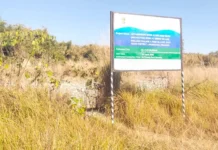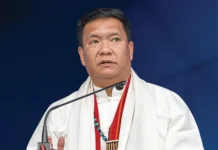NEW DELHI, 15 Jul: India was scheduled to submit its action taken report to the UN’s top anti-racism body, the United Nations Committee on the Elimination of Racial Discrimination (CERD Committee), on 15 July, “with regard to the steps taken to prevent and halt any measures directed at deporting or relocating the Chakma and Hajong communities of Arunachal Pradesh, including through the special census; the measures adopted to prevent and combat racial profiling or racial discrimination against the persons belonging to the Chakma and Hajong communities; and the implementation of the judgments of the Supreme Court of India in the cases of the National Human Rights Commission vs State of Arunachal Pradesh and Anr and the Committee for CR of CAP & Ors vs State of Arun-achal Pradesh & Ors,” according to a release from the Chakma Development Foundation of India (CDFI).
“On 29 April, the UN’s top anti-racism body, consisting of 18 experts elected by the members of the United Nations, directed India to submit its action taken report after it intervened against announcement of relocation by the chief minister of Arunachal in August 2001, the special census of the Chakmas and Hajongs launched by the deputy commissioner of Changlang district in November 2021 with a view to deporting Chakmas and Hajongs from Arunachal, and never processing their citizenship applications as directed by the Supreme Court of India in the two judgments,” the CDFI said.
“The intervention of the UN top anti-racism body is a recognition of racial discrimination faced by the Chakmas and Hajongs of Arunachal Pradesh by the United Nations. That the UN has to intervene, seeking implementation of the Supreme Court’s judgments in the country, sends an absolutely wrong message on India. If the Supreme Court judgments are not implemented by the union of India and the state of Arunachal Pradesh, it basically means that the rule of law does not exist in the country for the Chakmas and Hajongs,” said CDFI founder Suhas Chakma.



